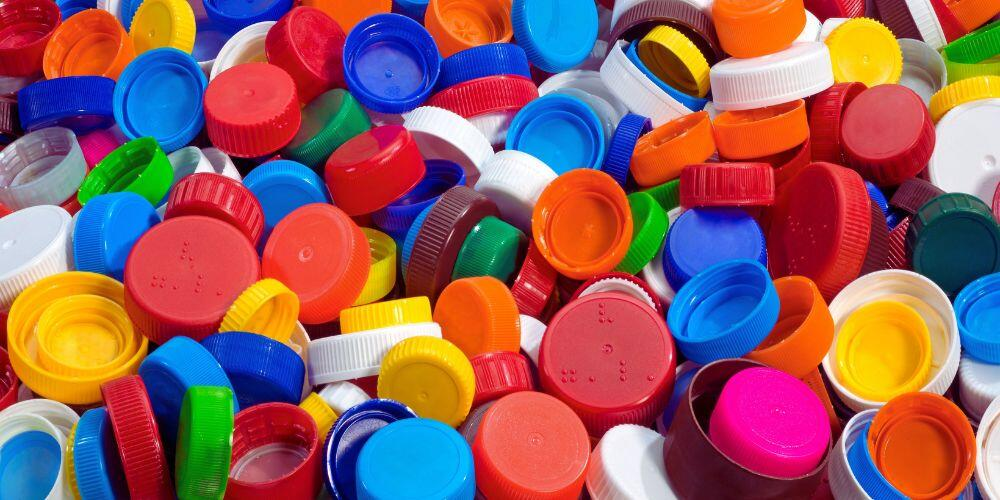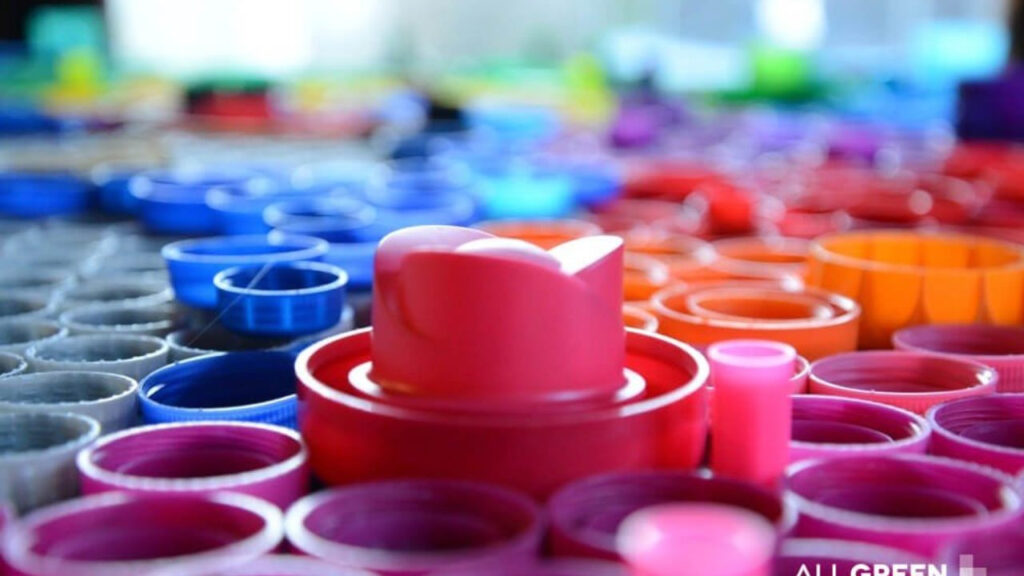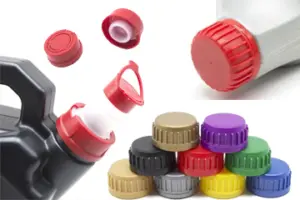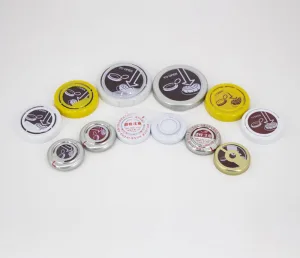Do you know? Recycling plastic bottle caps can have a significant impact on the health of the environment. Recycling these lids saves resources, reduces pollution and prevents them from entering landfills and oceans.
Recycling plastic bottle caps is especially important because they are often made from a different type of plastic than the bottle itself. This means that if bottle caps are not properly recycled, they can contaminate the recycling stream and render entire batches of plastic unusable. By individually separating and recycling bottle caps, we ensure that the plastic can be efficiently transformed into new products.
In addition to reducing waste. Recycled plastic bottle caps can be used to make a variety of products, such as new bottles, containers, and new plastic caps.

Impact of plastic bottle caps on the environment
Plastic bottle caps, which look like just a small plastic cap, will have a huge impact on the environment if not handled properly. In addition, their final destinations are mainly as follows:
- Environmental pollution: Plastic bottle caps are not easily degraded and will exist in the natural environment for a long time, causing pollution to soil and water resources. In addition, plastic bottle caps can also absorb harmful substances and enter the food chain, posing potential threats to human health.
- Flow to the ocean: Marine animals often eat plastic bottle caps by mistake, causing gastrointestinal obstruction or even death. According to statistics, hundreds of thousands of marine animals die every year due to plastic waste.
- Waste of resources: The production of plastic bottle caps requires the consumption of non-renewable resources such as petroleum, which increases the environmental burden.
- Burned: Burning plastic bottle caps will release toxic gases such as dioxins and furans, which will aggravate air pollution and harm human health.
How plastic bottle cap recycling works
Plastic bottle cap recycling is a benefit to the environment and economic development. It can not only reduce the environmental pollution caused by plastic waste, but also convert discarded plastic bottle caps into valuable renewable resources. The working principle of plastic bottle cap recycling mainly includes the following steps:
- Collection: Waste plastic bottle caps are collected, usually from trash cans or recycling bins in homes, commercial places and public places.
- Sorting: The collected plastic bottle caps will be sorted to separate different types of plastic materials and colors.
- Cleaning: The sorted plastic bottle caps will be cleaned to remove dirt and impurities.
- Broken: The cleaned plastic bottle caps will be broken into small pieces.
- Melting: Broken plastic bottle caps will be melted into a liquid state.
- Granulation: The liquid plastic will be cooled and shaped into small particles, called recycled plastic particles.
- Reuse: Recycled plastic pellets can be used to make new plastic products such as textiles, packaging materials and other plastic arts and crafts.
Recycled plastic bottle caps can reduce the exploitation of non-renewable resources such as oil, save energy, and reduce carbon emissions, which have important economic and environmental benefits.

Plastic bottle cap recycling: many benefits
Recycling plastic bottle caps can not only reduce the harm caused by plastic waste to the environment, but also bring many economic and social benefits. Here are the main benefits of recycling plastic bottle caps:
Environmental benefits
- Reduce plastic pollution: Plastic bottle caps are one of the common plastic wastes. Recycling can effectively reduce its pollution to the environment. Plastic bottle caps are not easily degraded and will accumulate on the surface or enter the ocean, causing soil and water pollution and endangering the survival of animals and plants.
- Save resources: Recycling plastic bottle caps can reduce the exploitation of non-renewable resources such as oil and save resources. The amount of oil required to produce a ton of recycled plastic is about half that of producing a ton of new plastic.
- Reduce carbon emissions: Recycling plastic bottle caps can reduce greenhouse gas emissions produced during the plastic production process and reduce carbon emissions. Research shows that recycling plastic can reduce carbon emissions by up to 70% compared to producing new plastic.
Economic benefits
- Create employment: The plastic bottle cap recycling industry can create a large number of employment opportunities. The plastic bottle cap recycling industry directly employs more than 60,000 people in the United States.
- Reduce production costs: Using recycled plastic particles can reduce production costs and increase corporate profits. Recycled plastics are typically 20%-30% less expensive than new plastics.
- Promote economic development: Plastic bottle cap recycling can promote the development of circular economy, promote the upgrading of related industries, and create new economic growth points.
Social benefits
- Improve environmental awareness: Plastic bottle cap recycling can increase the public’s environmental awareness, encourage people to reduce the use of plastic products, and develop good habits of garbage classification.
- Promote sustainable development: Plastic bottle cap recycling is one of the important ways to achieve sustainable development, which can help us reduce our impact on the environment and build a better future.
Summarize
Plastic bottle cap recycling is a systematic project that requires the participation of the whole society. We should call on more people to understand the importance of plastic bottle cap recycling, improve environmental awareness, and develop good habits of garbage classification; we can support relevant policies and measures to encourage relevant plastic cap manufacturers to use recycled plastic particles, reduce production costs, and contribute to environmental protection.




